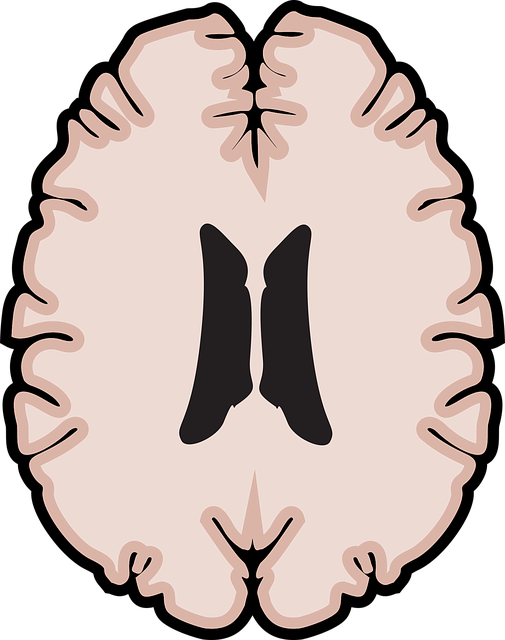Louisville's Crisis Intervention Teams (CITs), bolstered by Louisville Cognitive Behavioral Therapy (LCBT) training, play a crucial role in de-escalating crises and promoting long-term recovery. Integrating LCBT into their programs equips professionals with skills to identify and challenge negative thought patterns during high-pressure scenarios, fostering emotional healing. Effective CIT training involves interactive workshops, role-playing, stress management techniques, cultural sensitivity training, and community outreach, enhancing care quality, resilience, and public awareness, ultimately reducing crisis impact.
Louisville’s mental health network relies heavily on Crisis Intervention Team (CIT) training programs to effectively manage and de-escalate crisis situations. This article delves into the importance of CITs, highlighting their role as a vital resource within the city’s framework. We explore the integration of Louisville Cognitive Behavioral Therapy (CBT) in these teams’ training, focusing on its impact on crisis management. Furthermore, it provides insights into designing comprehensive CBT-based CIT programs, emphasizing essential components for optimal performance.
- Understanding Crisis Intervention Teams: A Vital Resource in Louisville's Mental Health Network
- The Role of Cognitive Behavioral Therapy (CBT) in Training Effective Crisis Teams
- Designing Comprehensive Training Programs: Essential Components for Louisville's CBT-Based Crisis Intervention Teams
Understanding Crisis Intervention Teams: A Vital Resource in Louisville's Mental Health Network

In Louisville, Crisis Intervention Teams (CITs) stand as a vital resource within the mental health network, offering specialized support to individuals in distress. These teams, comprising trained professionals from diverse backgrounds, including Louisville Cognitive Behavioral Therapy practitioners, play a crucial role in de-escalating crises and promoting long-term recovery. By integrating community outreach programs and empathy-building strategies, CITs foster a supportive environment that addresses the unique needs of those facing mental health challenges.
The effectiveness of these teams is underscored by their ability to conduct comprehensive risk assessments for mental health professionals, ensuring both client safety and the well-being of the interveners. This holistic approach not only enhances the quality of care but also contributes to the overall resilience of Louisville’s mental health ecosystem, making it a beacon of hope for individuals navigating the complexities of their psychological well-being.
The Role of Cognitive Behavioral Therapy (CBT) in Training Effective Crisis Teams

Cognitive Behavioral Therapy (CBT) plays a pivotal role in equipping crisis intervention team members with the skills to handle high-pressure situations effectively. This evidence-based approach focuses on identifying and modifying negative thought patterns, enabling professionals to support individuals experiencing crises. By teaching participants to recognize cognitive distortions and challenge them, CBT empowers teams to foster emotional healing processes during critical incidents.
In Louisville, Cognitive Behavioral Therapy serves as a cornerstone for training, ensuring that crisis interventionists are not just responsive but proactive in their approach. The therapy’s emphasis on stress management techniques allows team members to remain calm under pressure, enhancing their ability to provide clear guidance and support. Moreover, integrating CBT into these programs contributes to the development of effective public awareness campaigns, as it equips individuals with tools to navigate stressful situations, thereby reducing the frequency and impact of crises.
Designing Comprehensive Training Programs: Essential Components for Louisville's CBT-Based Crisis Intervention Teams

Designing comprehensive training programs for Louisville’s crisis intervention teams requires a multi-faceted approach, particularly when utilizing Cognitive Behavioral Therapy (CBT) as the foundational model. An effective CBT-based program should incorporate several essential components to ensure ready and skilled responders. Firstly, training must delve into the nuances of CBT techniques, equipping team members with the tools to identify and challenge negative thought patterns during crises. This involves interactive workshops and role-playing scenarios to enhance practical application.
Moreover, cultivating inner strength development is vital to foster resilience among team members. Programs should include modules on stress management, emotional regulation, and self-care strategies, enabling responders to effectively support others while maintaining their own well-being. Additionally, considering Louisville’s diverse community, integrating cultural sensitivity in mental healthcare practice is essential. Training should address unconscious biases, promote culturally competent care, and educate teams on the impact of cultural factors during crisis interventions. Equally important is a robust Community Outreach Program Implementation segment, where trainees learn to connect with at-risk populations, build trust, and offer tailored support within the community’s unique fabric.
Louisville’s commitment to fostering effective crisis intervention teams through cognitive behavioral therapy (CBT) based training is a significant step towards enhancing mental health support. By integrating comprehensive programs that address critical components, the city can ensure its crisis teams are well-equipped to handle various situations. This strategic approach not only improves immediate response times but also contributes to long-term recovery for individuals in crisis. With ongoing refinement and adherence to evidence-based practices, Louisville’s CBT training model has the potential to revolutionize mental health care and serve as a model for other communities.














